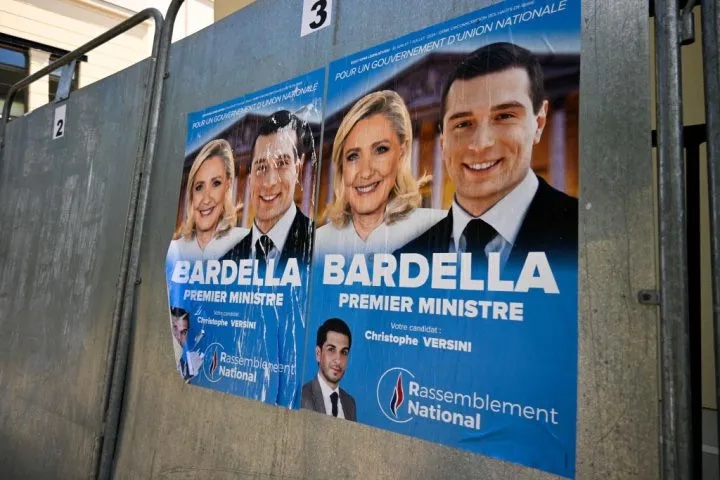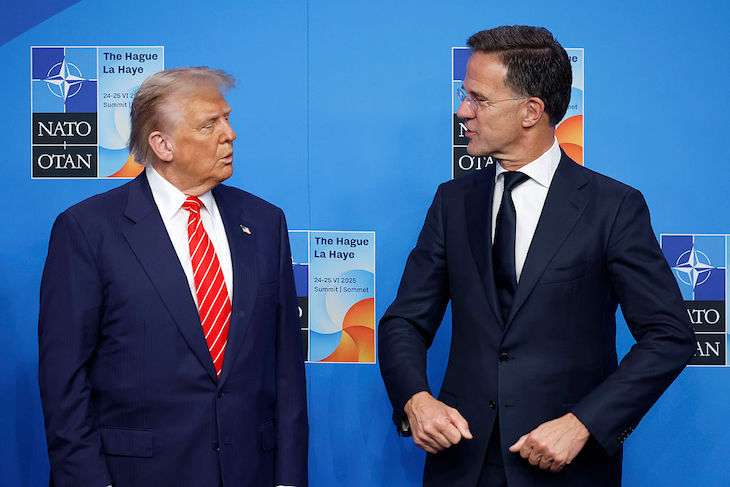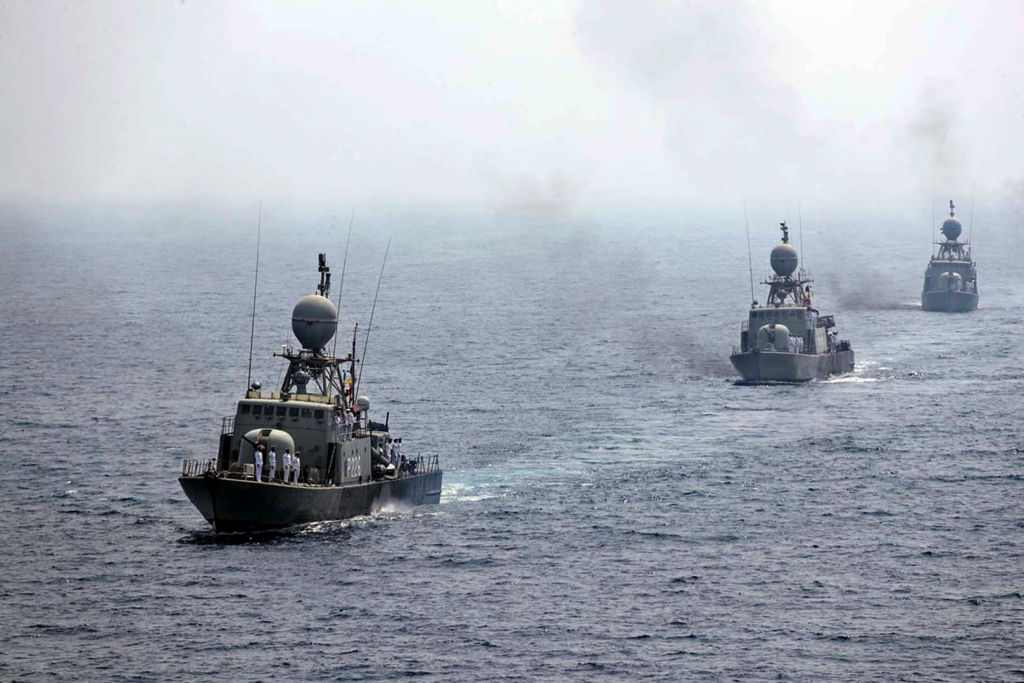Has France’s far right just made a 180-degree turn on Ukraine? The leader of the National Rally, Jordan Bardella, expressed his support for sending “ammunition and equipment [Ukraine] needs to hold the front” at a recent arms fair. Last year, Bardella stated “the war would not end without a withdrawal of Russian troops and a return of complete and full sovereignty of Ukraine on the territories that are currently occupied by Russia.”
Bardella, just like other figures on France’s nationalist right is hedging his bets. He is, for example, against sending “equipment that could have consequences of escalation in Eastern Europe.” Likewise, Marion Maréchal, the niece of Marine Le Pen, wishes for Ukraine’s victory but does not want to see Ukraine join NATO.
No, France’s nationalist right have not joined the ranks of Boris Johnson and Giorgia Meloni. But they do seem to be on a journey, particularly when compared to the consistently pro-Russian line once pursued by Le Pen, who previously described Vladimir Putin as someone with whom she was defending “shared values,” who made numerous trips to Moscow, and who even received millions in Russian funding. As late as 2022, Le Pen blamed the war equally on Russian imperialism and on “dangerous war-mongering attitudes of the European Union.”
This shift may be driven by instrumental political considerations, not by a genuine change of hearts. Yet, to demand that politicians do the right thing, in the right way, and for the right reasons holds them to an impossible standard. Given the National Rally’s past, this change is to be celebrated — not least because in a few days it may be impossible to keep Le Pen’s heirs from France’s cabinet.
The National Rally-led coalition is polling at 35 percent and the alliance of the far left and France’s Socialists is close to 30 percent. Meanwhile, Macron’s own governing party is trailing far behind, in the low twenties. Even with the run-off vote, which penalizes extreme candidates, it is imaginable that the far right may end up controlling the legislature outright or that some convoluted power-sharing arrangement will be created that will bring the far right into government.
Moreover, it is far from obvious that bringing Bardella and his acolytes to power carries greater risks than striking a deal with France’s unhinged, antisemitic and decidedly pro-Russian far left. Shockingly, Jean-Luc Mélenchon has, in the past, called Russia “a more reliable partner than the United States.” In contrast, by trying to balance the imperative of helping Ukraine with real or imaginary concerns over escalation, France’s nationalists sound much more like Olaf Scholz and Joe Biden than like Viktor Orbán.
The pro-Ukrainian shift on the far right may be short-lived. When in government, the National Rally could revert to its long-standing coziness with Putin and thwart Macron’s efforts to position himself as a key player in the effort to secure a Ukrainian victory. But that outcome seems unlikely as it would require Bardella to walk straight into a trap set up by Macron in the form of this year’s snap election. Macron’s whole point is to defang the far right ahead of the 2027 presidential election by demonstrating their lack of competence and judgment when participating in government.
The best answer that the National Rally can provide is to try to govern well, if given the opportunity by French voters. With 55 percent of the French in support of more, or the same level, of assistance to Ukraine, it would be political malpractice for the nationalists to make their debut in government by undercutting the Ukrainian cause.
Political churn in France — and in the UK — just ahead of a key NATO summit has the Ukrainians understandably worried. Given the levels of support enjoyed by figures like Bardella, Maréchal, or Éric Zemmour, it is farfetched to imagine that they can be kept out of political power forever. This is not a matter of “normalizing” them — a political movement that polls at 35 percent, or more, is thoroughly “normal,” whether one agrees with its positions or not.
One may only wish that France’s far right follows the example of the increasingly moderate right-wing populist parties in Sweden, Finland, Italy, and other European countries. Just how it approaches the question of France’s and the EU’s support for Ukraine when in government will be an important litmus test.
This article was originally published on The Spectator’s UK website.


























Leave a Reply